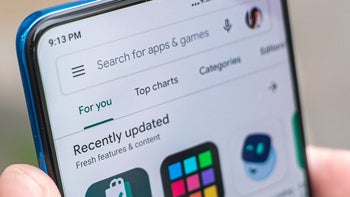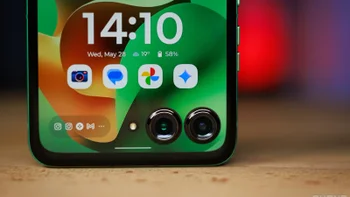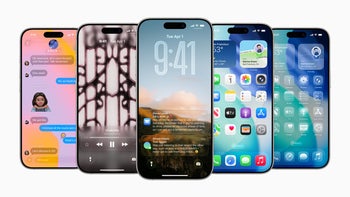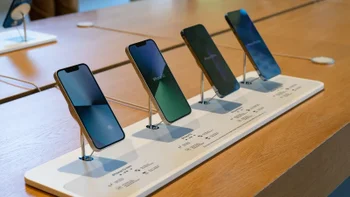Apple Intelligence comes to make you use your iPhone less

WWDC 24 is now history, but the announced iOS 18 with the most talked-about feature – Apple Intelligence – is yet to hit the iPhones. When the updated operating system with its new AI-driven capabilities does arrive later this year, it could potentially make you use your iPhone less.
This is a feature, not a bug, as a modern day person would put it. It's not because the AI whistles and bells on iOS 18 will be somehow boring: it's because through AI, phone users will be able to (potentially) get more value and get more done with… less screen time.
That's what Apple's CEO Tim Cook and popular YouTuber Marques Brownlee discussed in a recent video.
Tim Cook delves into Apple's approach to AI, emphasizing its integration into everyday devices like the Apple Watch and iPhone. Apple's focus remains on user-centric benefits, such as crash detection and health monitoring, underscoring privacy as a core principle. The interview highlights Apple's transition to openly discussing AI, now branded as "Apple Intelligence," and their cautious yet innovative integration of generative AI.
At a point, the discussion touches the future of smartphones and the "Less screen time, more value" mantra. Cook envisions a future where smarter AI tools mean users spend less time on their phones. This aligns with Apple's initiatives like Screen Time and Focus modes, designed to help users manage their digital consumption.
Furthermore, Cook argues that AI is not a new field for Apple, but has been integral to the fruit company products long before the current buzz around generative AI. Features like fall detection and Afib monitoring on the Apple Watch are driven by machine learning.
He says Apple's AI philosophy is to make technology invisible yet deeply integrated, so users don't need to consciously interact with AI but benefit from its seamless incorporation into apps and services.
As you probably know already, not all iPhones are made equal.
That's because the iPhone 15 and iPhone 15 Plus (let alone older iPhones) cannot support Apple Intelligence, the tech giant's new AI initiative. On the other hand, the iPhone 15 Pro and iPhone 15 Pro Max (and the upcoming iPhone 16 line) will support all of the new AI-based features.
The iPhone 15 and iPhone 15 Plus have 6GB of DRAM, whereas the M1 and the A17 Pro chip (which powers the iPhone 15 Pro and iPhone 15 Pro Max) both have 8GB of DRAM. Consequently, the iPhone 15 and iPhone 15 Plus do not receive Apple Intelligence, unlike the iPhone 15 Pro and iPhone 15 Pro Max.
Tim Cook delves into Apple's approach to AI, emphasizing its integration into everyday devices like the Apple Watch and iPhone. Apple's focus remains on user-centric benefits, such as crash detection and health monitoring, underscoring privacy as a core principle. The interview highlights Apple's transition to openly discussing AI, now branded as "Apple Intelligence," and their cautious yet innovative integration of generative AI.
Furthermore, Cook argues that AI is not a new field for Apple, but has been integral to the fruit company products long before the current buzz around generative AI. Features like fall detection and Afib monitoring on the Apple Watch are driven by machine learning.
He says Apple's AI philosophy is to make technology invisible yet deeply integrated, so users don't need to consciously interact with AI but benefit from its seamless incorporation into apps and services.
Cook mentions their "Private Cloud Compute" which ensures that data processing happens securely, either on-device or through Apple's private cloud, minimizing the risk of data exposure. This approach is crucial for maintaining user trust, particularly as AI technologies require more complex computations, often handled off-device.
Who gets Apple Intelligence?
As you probably know already, not all iPhones are made equal.
That's because the iPhone 15 and iPhone 15 Plus (let alone older iPhones) cannot support Apple Intelligence, the tech giant's new AI initiative. On the other hand, the iPhone 15 Pro and iPhone 15 Pro Max (and the upcoming iPhone 16 line) will support all of the new AI-based features.
The iPhone 15 and iPhone 15 Plus have 6GB of DRAM, whereas the M1 and the A17 Pro chip (which powers the iPhone 15 Pro and iPhone 15 Pro Max) both have 8GB of DRAM. Consequently, the iPhone 15 and iPhone 15 Plus do not receive Apple Intelligence, unlike the iPhone 15 Pro and iPhone 15 Pro Max.
Follow us on Google News













Things that are NOT allowed:
To help keep our community safe and free from spam, we apply temporary limits to newly created accounts: